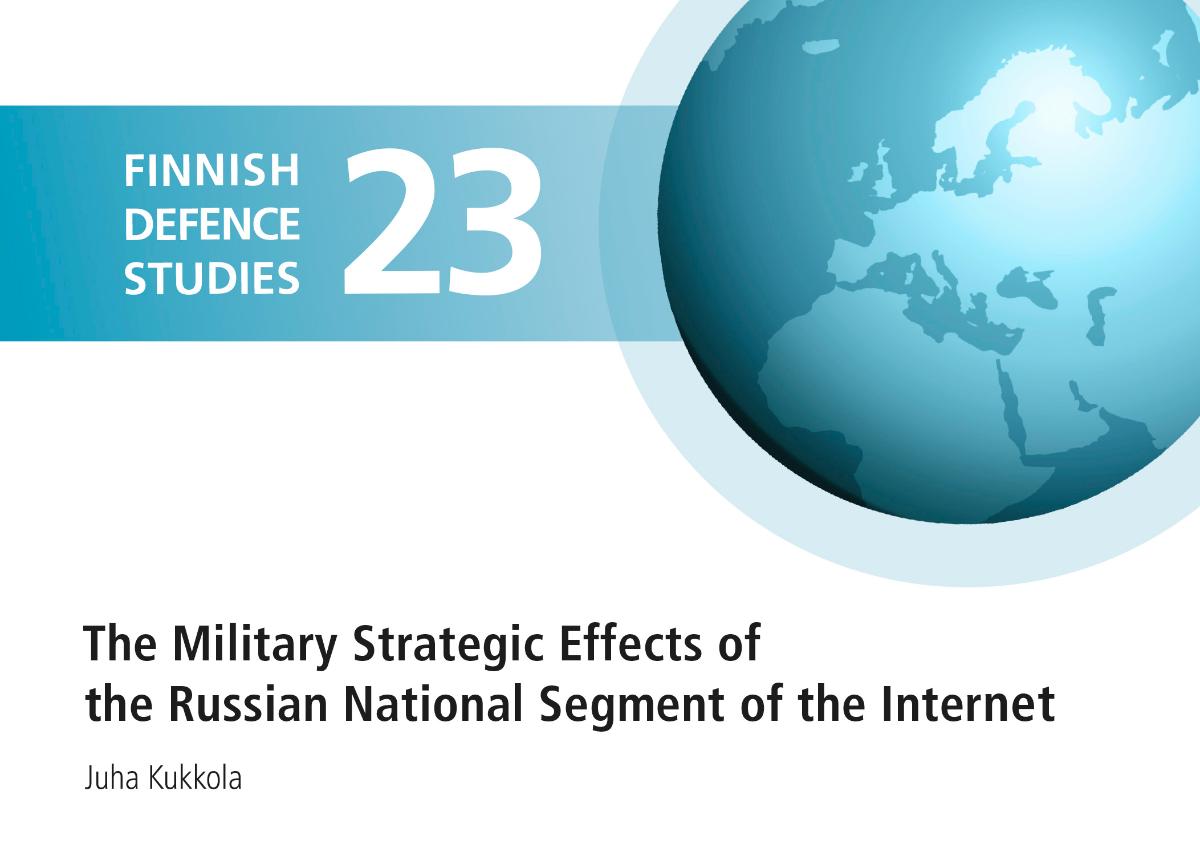The military strategic effects of the Russian national segment of the internet studied in thesis

Major Juha Kukkola’s thesis develops a theoretical and conceptual basis for studying structural cyber asymmetry and examines the strategic effects of the Russian national segment of the internet.
The theory-driven qualitative case study demonstrates that cyber power can be studied as a means to shape cyberspace. This approach offers a new perspective on studying the effects of national cyber strategies and the asymmetric power relationships between states.
The main argument of the thesis is that the structural cyber asymmetry caused by the creation of a national segment of the internet sets significant premises and frames of reference on the states’ use of force in cyberspace. Kukkola argues that structural cyber asymmetry also shapes the effects of the use of force. As such, the construction of a national segment of the internet can be compared to strategic level preparation of a cyber battlefield. The Russian national segment of the internet can, if successfully completed, change the global balance of power in cyberspace.
However, the Russian national segment, as currently envisioned, has serious vulnerabilities. Its construction will increase the interdependencies between domains, great power competition, risks of escalation, and the risk of preventive or even pre-emptive cyber strikes. The national segment of the internet increases the fragmentation of cyberspace and strengthens the norm of cyber sovereignty.
The thesis can be accessed in the publication archive Doria.



